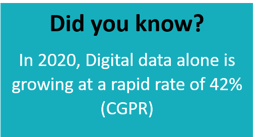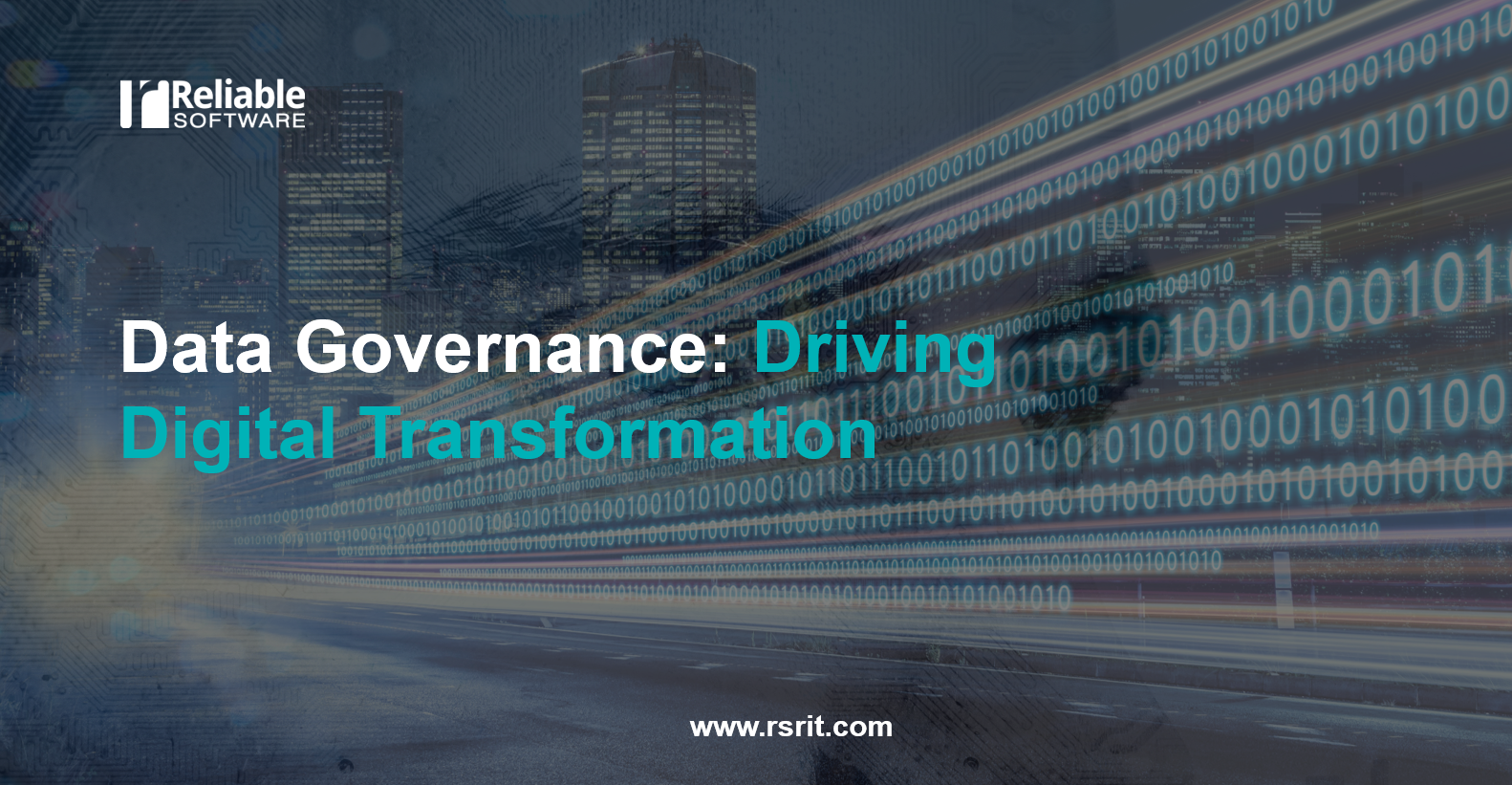With digital transformation disrupting conventional business processes, enterprises are finding themselves at crossroads. In this post, let’s have a quick look at what is driving digital transformation.
When asked, What is the most critical strategic asset of your business? Corporate leaders gave out an answer without a second thought – Data.
Over the past decade, businesses across the globe are drowning in an explosion of data. With data continuing to grow exponentially, businesses struggle to manage the data in their hands. In the wake of this scenario, businesses turned to the aid of a practice called Data Governance.
What is Data Governance?
In a broad sense, Data Governance is:
- Bringing this growing mountain of data under control.
- Securing the data.
- Making sure it is retrievable when needed.
- Be aligned with compliance regulations.
Holistically, the Data Governance umbrella encompasses many functions, including:
- Data security
- Data integrity
- Data lineage
- Data access
- Data delivery
- Data synchronization
- Loss prevention
- Overall data management
Is investing in Data Governance tools worthwhile?
Gartner predicts that ‘Through 2022, only 20% of organizations investing in information governance will succeed in scaling governance for digital business.’
So, yes. Investing in Data Governance tools is the right way to go to ensure business continuity as well as expansion. Harnessing your data will enable you to derive benefits that surpass your investment in tools.
What benefits can you expect?

- It promotes better decision making.
- It enhances operational efficiency.
- It improves data comprehension.
- It drives revenue, among others.
Data Governance and digital transformation:
Digital transformation is not the implementation of new software. Data is the fuel that drives digital transformation. If you are not managing and making the best use of your data, it will not generate any new value. If you cannot integrate data across business functions, you will not find new transformation insights.
The value of data across functions:
The various areas that data can impact include:
Finance – Promotes precise, timely, and consistent reporting.Management – Promotes the efficient and effective use of strategic assets while aiding in the development of oversight that allows the business to make the most of the opportunities at hand.
Sales – Aids in gaining comprehensive insights into customer behavior, preference, buying patterns, among others.
Final thoughts –
To keep up with the rapid pace at which the digital landscape is progressing, enterprises need to adopt and apply advanced technologies. For this, the formulation and execution of a Data Governance strategy is critical. If you need help with Data Governance, contact us today.



